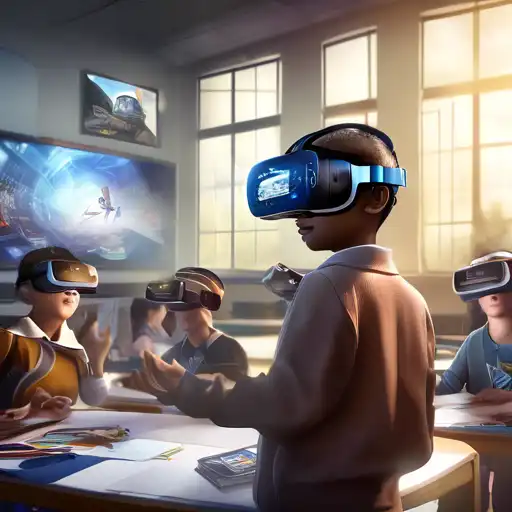Transforming Learning with Virtual Reality: The Future of Education
Virtual Reality (VR) is revolutionizing the educational landscape, offering immersive learning experiences that were once unimaginable. This technology is not just a tool for entertainment but a powerful educational instrument that can enhance learning outcomes, engage students in unprecedented ways, and provide access to worlds beyond the classroom walls.
The Benefits of VR in Education
VR in education offers numerous benefits, including enhanced engagement, improved retention rates, and the ability to simulate real-world scenarios. Students can explore historical sites, dissect virtual frogs, or even travel through the human bloodstream, all from the safety of their classroom.
- Engagement: VR captivates students' attention like no other medium, making learning more enjoyable and effective.
- Retention: Studies show that immersive learning experiences significantly improve memory retention.
- Accessibility: VR can bring distant or inaccessible locations and experiences to students everywhere.
Implementing VR in the Classroom
Implementing VR technology in education requires careful planning and consideration. Schools and educators must assess their needs, budget, and the technological infrastructure required to support VR learning environments.
For those interested in integrating VR into their curriculum, starting small with pilot programs can be an effective strategy. Partnering with VR technology providers can also offer valuable insights and resources.
Challenges and Considerations
Despite its potential, VR in education faces challenges such as high costs, the need for technical support, and concerns over screen time. However, as technology advances and becomes more affordable, these barriers are gradually being overcome.
Educators must also consider the pedagogical implications of VR, ensuring that it complements traditional teaching methods rather than replacing them entirely.
The Future of VR in Education
The future of VR in education is bright, with ongoing advancements in technology making it more accessible and effective. As VR becomes more integrated into educational systems, it has the potential to transform how we teach and learn, making education more interactive, engaging, and effective for students worldwide.
For more insights into the latest trends in education technology, explore our EdTech Innovations section.
Virtual Reality is not just a fleeting trend but a significant leap forward in educational technology. By embracing VR, educators can provide students with unparalleled learning experiences that prepare them for the future.
